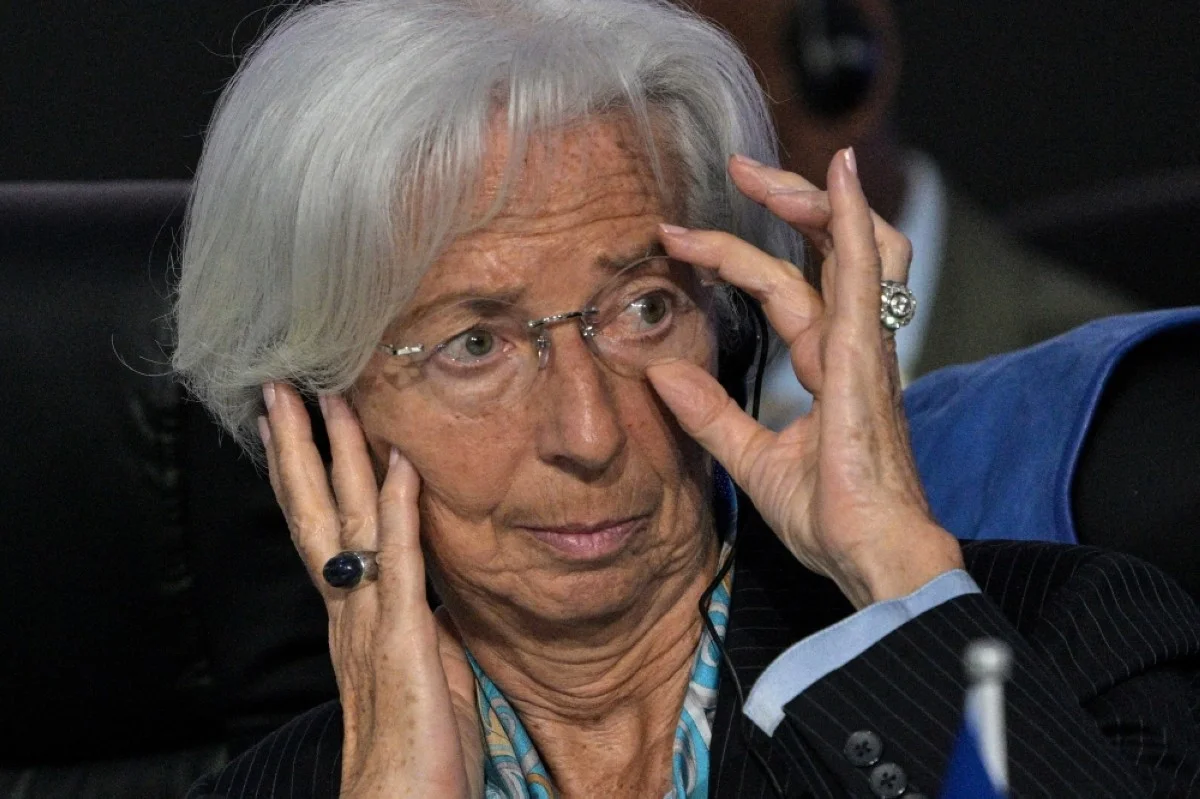FRANKFURT: The European Central Bank froze interest rates again on Thursday as it held off from starting to cut borrowing costs amid concerns that sticky inflation is not easing as fast as hoped. The Frankfurt-based institution’s governing council held the benchmark deposit rate steady at a record four percent for a fourth straight meeting, as widely expected.
“Although most measures of underlying inflation have eased further, domestic price pressures remain high, in part owing to strong growth in wages,” said the ECB in a statement. The ECB embarked on a historic rate hiking cycle after the costs of everyday goods surged following Russia’s invasion of Ukraine and amid pandemic-related supply chain woes. Inflation, which peaked at over 10 percent in late 2022, has been steadily easing, hitting 2.6 percent in February, heading towards the ECB’s two-percent target.
At the same time the outlook is bleak, with the eurozone narrowly dodging a technical recession in the second half of 2023, weighed down by a poor performance in its biggest economy, Germany.
On Thursday, the central bank released updated forecasts, with inflation expected to fall faster than previously thought and returning to two percent in 2025. It also predicted the 20-nation eurozone’s economy would turn in weaker growth this year than previously thought. Nevertheless, the ECB remains worried about completing the “last mile” to reach its inflation target, prompting it to keep rates at the same level they have been since October. Announcing its latest decision, the bank reiterated that it was “determined to ensure that inflation returns to its two-percent medium-term target in a timely manner.
“Based on its current assessment, the governing council considers that the key ECB interest rates are at levels that, maintained for a sufficiently long duration, will make a substantial contribution to this goal.” Thursday’s monetary policy decision, and press conference later by president Christine Lagarde, is being closely watched for clues on when the ECB will start cutting borrowing costs, with most investors now betting on a first move in June.
Analysts believe the drivers of inflation have shifted from energy costs, which surged after Russia invaded Ukraine in 2022, to inflation in the services sector and wage growth. “Wage growth remains elevated with little sign of a rapid turnaround yet, fuelling the stickiness in services inflation,” said Frederik Ducrozet, chief economist at Pictet Wealth Management.
Heightened geopolitical tensions in the Middle East have also added to worries that inflation could rebound. Yemeni rebel attacks on Red Sea shipping have prompted shipping companies to avoid the vital trade route, while a spillover of the Zionist-Hamas war could impact oil prices. —AFP











